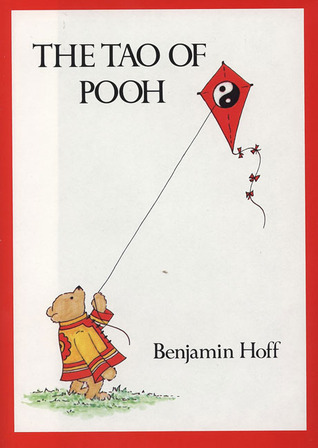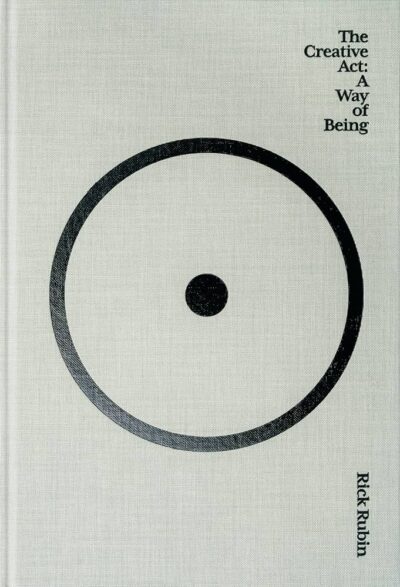182 Results with the "Philosophical" genre
Adventure Fiction (1164)
Biography (435)
Business & Finance (1)
Children's Literature (124)
Comics (6)
Culture (51)
Drama (123)
Dystopian (29)
Fable (86)
Fantasy (1132)
Fantasy (203)
Fiction (1010)
Finance (1)
Gothic Fiction (12)
Historical Fiction (615)
History (122)
Horror (56)
Lifestyle (36)
Literary (404)
Literary Fiction (207)
Memoir (113)
Mystery (422)
Non-fiction (87)
Novel (549)
Paranormal Fiction (96)
Philosophy (45)
Poetry (249)
Political Fiction (14)
Politics (42)
Practical (32)
Psychological (4)
Psychological Thriller (108)
Relationship (6)
Romance Novel (716)
Romantic Melodrama (14)
Satire (91)
Science (46)
Science Fiction (345)
Self-help (68)
Society (65)
Society (2)
Spiritual Growth (1)
story (2)
Thriller (704)
True Crime (56)
view (11)
Women's Fiction (2)
Young Adult (233)
-
Story
The Tao of Pooh
 The Tao of Pooh by Benjamin Hoff uses Winnie the Pooh to explain Taoism, showing how simplicity and harmony lead to peace and contentment.
The Tao of Pooh by Benjamin Hoff uses Winnie the Pooh to explain Taoism, showing how simplicity and harmony lead to peace and contentment.-
4.5 K • Jan 24, '25
-
4.9 K • Jan 24, '25
-
4.2 K • Jan 24, '25
-
-
Chapter
The Source of Creativity
 The chapter "The Source of Creativity" explores the vast and limitless reservoir of creative material that surrounds us at all times. Every thought we have, every sensation we experience, and even the fleeting fragments of dreams or forgotten ideas contribute to this boundless source. Creativity, rather than being something we generate in isolation, is described as an external force—one that we tune into through observation, intuition, and memory. This perspective shifts the understanding of artistic…
The chapter "The Source of Creativity" explores the vast and limitless reservoir of creative material that surrounds us at all times. Every thought we have, every sensation we experience, and even the fleeting fragments of dreams or forgotten ideas contribute to this boundless source. Creativity, rather than being something we generate in isolation, is described as an external force—one that we tune into through observation, intuition, and memory. This perspective shifts the understanding of artistic…-
341.4 K • Ongoing
-
-
Chapter
The Sincerity Dilemma
 The Sincerity Dilemma examines the intricate relationship between authenticity and artistic expression, revealing the challenges that arise when sincerity becomes the primary focus. Many creators strive to present their truest selves in their work, believing that authenticity is the key to artistic success. However, this chapter argues that an obsession with sincerity can have the opposite effect, causing art to feel forced, overly sentimental, or emotionally hollow—much like a greeting card that…
The Sincerity Dilemma examines the intricate relationship between authenticity and artistic expression, revealing the challenges that arise when sincerity becomes the primary focus. Many creators strive to present their truest selves in their work, believing that authenticity is the key to artistic success. However, this chapter argues that an obsession with sincerity can have the opposite effect, causing art to feel forced, overly sentimental, or emotionally hollow—much like a greeting card that…-
341.4 K • Ongoing
-
-
Chapter
The Prism of Self
 "The Prism of Self" delves into the intricate and ever-changing nature of individual identity, arguing that defining a singular, unchanging self is both challenging and unrealistic. Instead of adhering to the notion of a fixed identity, the chapter suggests that people embody a multitude of selves, each emerging in response to varying circumstances and moments in time. These variations are shaped by a range of factors, including emotional states, energy levels, personal histories, and even physical…
"The Prism of Self" delves into the intricate and ever-changing nature of individual identity, arguing that defining a singular, unchanging self is both challenging and unrealistic. Instead of adhering to the notion of a fixed identity, the chapter suggests that people embody a multitude of selves, each emerging in response to varying circumstances and moments in time. These variations are shaped by a range of factors, including emotional states, energy levels, personal histories, and even physical…-
341.4 K • Ongoing
-
-
Chapter
The Opposite Is True
 Artists often find themselves confined by self-imposed rules, following traditional methods and creative habits without questioning whether they are the best path forward. The chapter "The Opposite Is True" challenges this way of thinking by encouraging creators to flip their perspectives and consider the possibility that the opposite of what they believe to be true about their work might also hold value. Rather than accepting artistic conventions as absolute, this perspective asks artists to explore…
Artists often find themselves confined by self-imposed rules, following traditional methods and creative habits without questioning whether they are the best path forward. The chapter "The Opposite Is True" challenges this way of thinking by encouraging creators to flip their perspectives and consider the possibility that the opposite of what they believe to be true about their work might also hold value. Rather than accepting artistic conventions as absolute, this perspective asks artists to explore…-
341.4 K • Ongoing
-
-
Chapter
The Gatekeeper
 Within the creative process, every idea must pass through a crucial checkpoint—the gatekeeper, often recognized as the editor. This individual wields significant influence, shaping how a final piece of work is presented to the world, functioning as both a curator and a sculptor of raw ideas. The editor’s primary role is to enhance the most vital aspects of a creation while stripping away unnecessary elements, refining it into its most impactful and polished form. Editing is not just a mechanical…
Within the creative process, every idea must pass through a crucial checkpoint—the gatekeeper, often recognized as the editor. This individual wields significant influence, shaping how a final piece of work is presented to the world, functioning as both a curator and a sculptor of raw ideas. The editor’s primary role is to enhance the most vital aspects of a creation while stripping away unnecessary elements, refining it into its most impactful and polished form. Editing is not just a mechanical…-
341.4 K • Ongoing
-
-
 Creativity manifests in different ways for different people, often revealing a natural inclination toward one of two distinct approaches: The Experimenter and the Finisher. Experimenters thrive in the early stages of a project, reveling in boundless exploration, discovery, and the sheer joy of creation. They take pleasure in trying out new ideas, pushing boundaries, and letting their imagination roam freely without the pressure of committing to a final product. However, their enthusiasm for discovery can…
Creativity manifests in different ways for different people, often revealing a natural inclination toward one of two distinct approaches: The Experimenter and the Finisher. Experimenters thrive in the early stages of a project, reveling in boundless exploration, discovery, and the sheer joy of creation. They take pleasure in trying out new ideas, pushing boundaries, and letting their imagination roam freely without the pressure of committing to a final product. However, their enthusiasm for discovery can…-
341.4 K • Ongoing
-
-
Chapter
The Energy (In the Work)
 The chapter The Energy (In the Work) delves into the unseen but undeniable force that compels artists and creators to pursue their craft with intensity. It begins by exploring the question of what truly fuels a creator’s dedication, arguing that inspiration is not simply a matter of personal motivation but rather an energy that emerges from the work itself. This energy functions like an invisible current, pulling the creator deeper into their project, influencing their thoughts, emotions, and even their…
The chapter The Energy (In the Work) delves into the unseen but undeniable force that compels artists and creators to pursue their craft with intensity. It begins by exploring the question of what truly fuels a creator’s dedication, arguing that inspiration is not simply a matter of personal motivation but rather an energy that emerges from the work itself. This energy functions like an invisible current, pulling the creator deeper into their project, influencing their thoughts, emotions, and even their…-
341.4 K • Ongoing
-
-
Chapter
The Ecstatic
 The pursuit of creativity is often fueled by The Ecstatic—an indescribable sensation of overwhelming, almost intoxicating joy that emerges when something truly resonates. Whether it’s a breathtaking painting, a haunting melody, or a passage of literature that lingers in the mind long after it has been read, the Ecstatic is what draws both creators and audiences alike into the artistic experience. It’s akin to tasting fruit at the peak of its ripeness, a moment of perfection where everything aligns…
The pursuit of creativity is often fueled by The Ecstatic—an indescribable sensation of overwhelming, almost intoxicating joy that emerges when something truly resonates. Whether it’s a breathtaking painting, a haunting melody, or a passage of literature that lingers in the mind long after it has been read, the Ecstatic is what draws both creators and audiences alike into the artistic experience. It’s akin to tasting fruit at the peak of its ripeness, a moment of perfection where everything aligns…-
341.4 K • Ongoing
-
-
Chapter
The Art Habit (Sangha)
 In The Art Habit, Sangha advocates for a mindset where art is pursued for its intrinsic value rather than as a means to financial gain or social recognition. The chapter opens with a candid acknowledgment of the pressures that come with expecting art to provide a stable income, noting that such expectations can often stifle creativity. Instead of relying on artistic pursuits to sustain financial needs, Sangha suggests that artists should prioritize the integrity of their work, ensuring that their creative…
In The Art Habit, Sangha advocates for a mindset where art is pursued for its intrinsic value rather than as a means to financial gain or social recognition. The chapter opens with a candid acknowledgment of the pressures that come with expecting art to provide a stable income, noting that such expectations can often stifle creativity. Instead of relying on artistic pursuits to sustain financial needs, Sangha suggests that artists should prioritize the integrity of their work, ensuring that their creative…-
341.4 K • Ongoing
-
- Previous 1 2 3 … 19 Next
